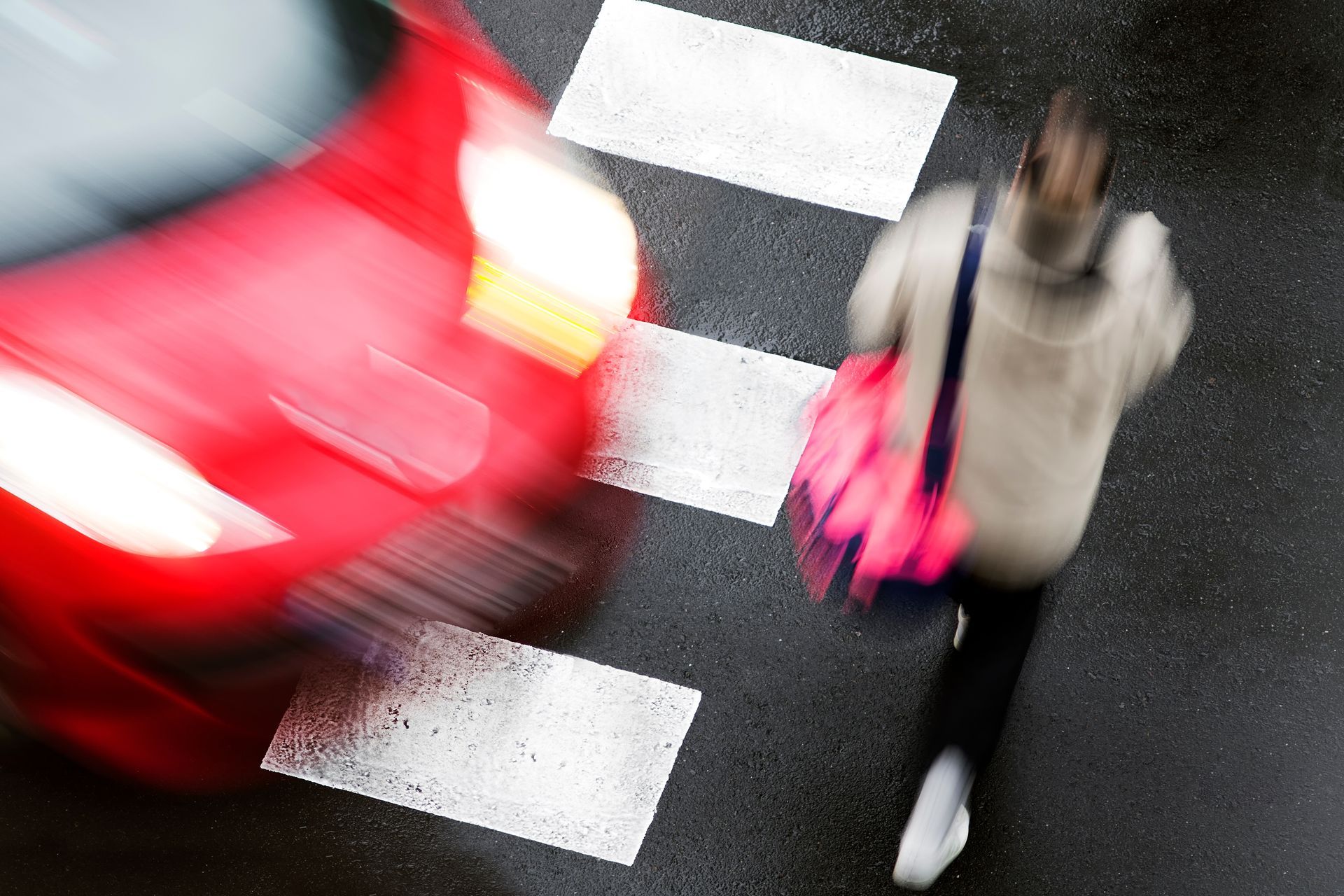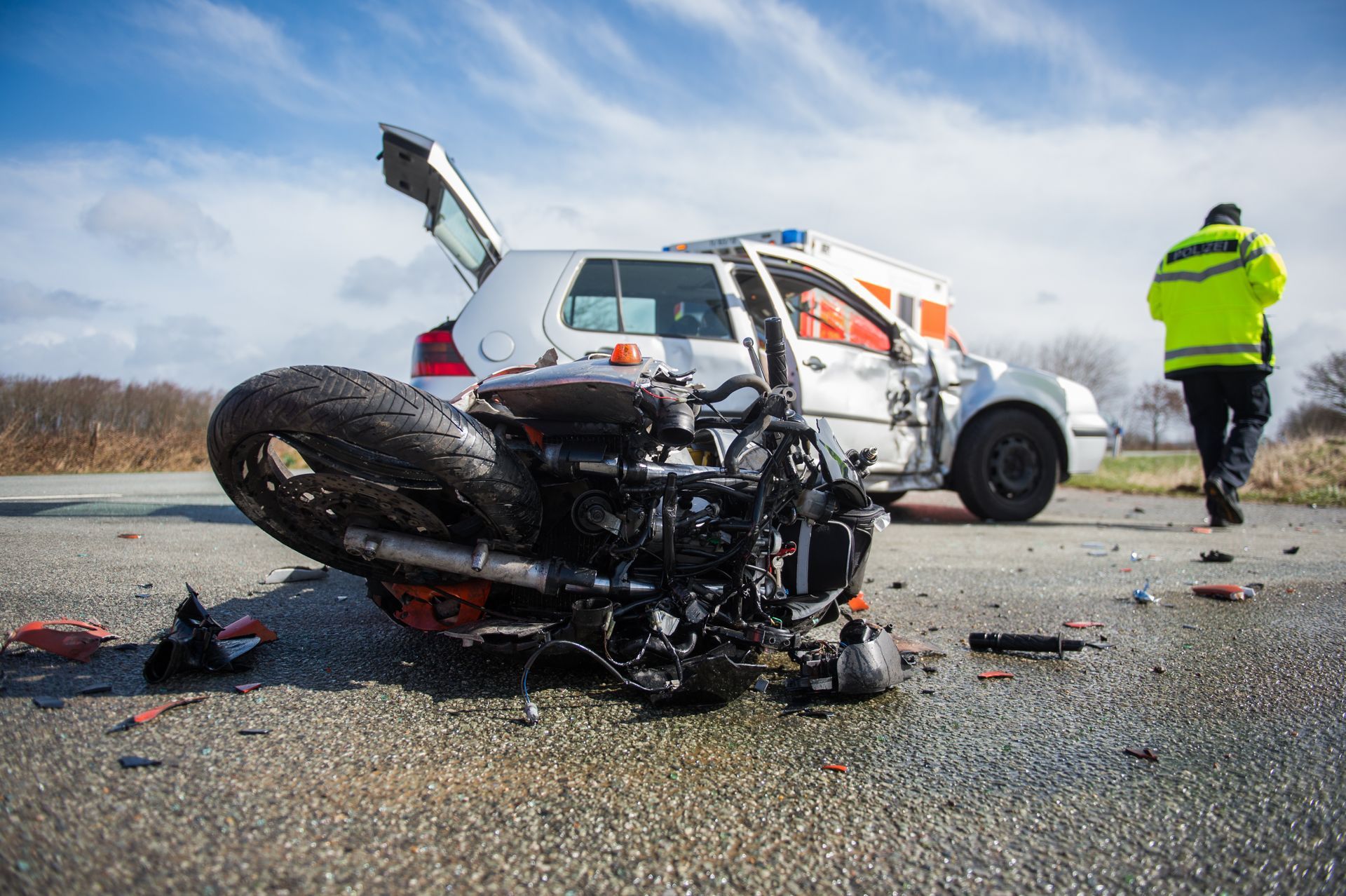Connecticut Crosswalk Laws: What to Do If You’re a Pedestrian Hit by a Car in a Crosswalk
In 2021, Connecticut took a bold step toward protecting pedestrians and expanded its laws to ensure greater safety. There are several potential causes of pedestrian accidents, from a driver neglecting to observe the presence of a person crossing the street, backing up into a pedestrian, failing to notice a pedestrian on a road they are turning into, pedestrians caught crossing a road when a signal changes from "walk" to "don't walk", failing to yield to pedestrians in a crosswalk or simply being distracted.
The new law improves the ease of crossing streets for pedestrians while obligating drivers to pay attention and be alert at all times. When a pedestrian is spotted in the crosswalk, it's imperative that drivers yield right away.
Connecticut Crosswalk Laws Overview:

Fundamentally, the crosswalk ruling declares that pedestrians have absolute right of way and can initiate crossing any street or intersection at a crosswalk by signaling to drivers their intention. Pedestrians can alert drivers of their presence by simply raising an arm in the direction of oncoming traffic. All motorists need to do is honor this signal and yield to any pedestrians crossing the street. Furthermore, if someone starts entering the crosswalk using either their body or an extension (such as a cane), it is up to all drivers faced with such circumstances to stop immediately and give way.
Key points to keep in mind for drivers and pedestrians.
- Drivers must yield to pedestrians in a crosswalk at all times.
- A driver who fails to yield can face fines and other penalties, depending on the severity of the situation.
- Pedestrians must also use caution when crossing the street, such as looking both ways before stepping into the crosswalk.
- Drivers must not pass any other vehicle that is stopped for a pedestrian in the crosswalk.
- Drivers must allow pedestrians to safely enter or exit any public transit vehicles that have stopped for them at intersections.
- When there are no traffic signals, drivers and pedestrians should abide by the rules of the road and exercise caution when crossing.
Drivers Who Hit Pedestrians in Crosswalks Can Face Repercussions:
If a pedestrian is found to be at fault for the car accident, then no consequences will follow for the driver. However, if it's revealed that the motorist was negligent and caused harm or fatality to another individual, they can expect significant punishments. In cases where driving under influence or fleeing from where the crash occurred, there could be felony charges as well. It is of utmost importance to assess all evidence carefully in order to ascertain who bears responsibility for an automobile accident.
Specifically, drivers who are found to be at fault for hitting a pedestrian in a crosswalk can expect:
- Traffic tickets: This is the most common consequence for drivers who are found to be at fault for hitting a pedestrian in a crosswalk. The amount of a traffic ticket for hitting a pedestrian in a crosswalk depends on the severity of the incident. Generally, fines can range from $150 - $200.
- Driver's License Penalties: Depending on the severity of the incident, a driver could face points to their driver's license. In Connecticut, if you have 6 points on your driving record at any point in time, the DMW issue a warning and requires a driver retraining program. If you receive 10 or more points, the DMW can suspend your driver's license. Depending on the number of infractions you were cited for, you could end up with a suspended or revoked license right away. For example, failure to yield(2 points), distracted driving (2 points), tailgating (3 points), and failure to grant the right of way to pedestrians (3 points). Depending on the circumstances leading up to the accident, drivers can easily rack up enough points from the incident which leads to a suspended license.
- Civil Liability: Those found at fault for crossing a pedestrian in a crosswalk can be held financially liable as well. This can include compensating for medical expenses and/or paying damages if the pedestrian was fatally injured. The amount of these payments can vary depending on the severity of the incident and if there are any other underlying factors (such as a driver who was under the influence or texting). Personal injury lawsuits are generally filed by the victim to get compensation for medical expenses, lost wages, and pain and suffering. The lawsuit will likely be served upon the at-fault driver, however, it is their insurance company that will usually handle and defend the personal injury case. In the unfortunate case of a fatal injury, the victim's family may choose to file a wrongful death lawsuit.
- Criminal Charges: The criminal charge for this type of offense can range from misdemeanors to felonies. For instance, in Connecticut, if you are found guilty of hitting a pedestrian in a crosswalk or causing any injury or death, you will be charged with a class A misdemeanor. This could result in up to 1 year in prison, and/or fines of up to $2,000. In extreme cases, such as fleeing the scene after hitting a pedestrian in a crosswalk, you can be charged with a felony which carries much harsher punishments. Again, depending on the severity of the case (such as ones that include hit-and-run instances, DUI, or fatal injuries), can result in years in jail and thousands of dollars in fines.
It is important for pedestrians and drivers to understand their rights and responsibilities in order to remain safe on the roads. Knowing that there can be significant consequences for drivers who are found at fault for hitting a pedestrian in a crosswalk is essential in deterring such actions from happening again. It is also important for victims to understand that they have legal recourse if they are injured due to another driver’s negligence.
What If the Pedestrian Was At-Fault?
While it is true that the driver will often be held liable for hitting a pedestrian in a crosswalk, there are cases where the pedestrian can also be held responsible. If a pedestrian was jaywalking or failed to use due care and caution when crossing the street, they could potentially be found negligent and therefore liable for any resulting damages. If the driver is found to be less than 50% responsible for the accident, they may not be held liable for any damages. In these cases, the pedestrian could be ordered to pay compensation for medical bills and other losses that were caused by their actions. These regulations guard drivers who were driving conscientiously and lawfully when they struck a pedestrian unexpectedly running onto the street.
Pedestrian Safety Tips:
To play it safe, staying aware of your surroundings is key. This means no phones and keeping the volume low enough so that you can still hear traffic. By implementing these safety measures, you are far less likely to be involved in a collision with a vehicle.
- Always use designated crosswalks and obey traffic signs
- Be aware of your surroundings and look both ways before you cross the street
- Make eye contact with drivers to ensure they see you
- Wear reflective clothing or carry a light when walking at night
- Stay off of your cell phone while you’re crossing the street
- Avoid alcohol and drugs when walking; they can impair your judgment and reaction time
- Don't jaywalk or cross against traffic signals
- Be extra cautious when walking around parked cars, as drivers may not be able to see you
- Pay attention to drivers, even if you have the right of way
- Take extra caution around school zones, construction sites and other areas where traffic is dense or unpredictable.
Drivers: What To Do if You Hit a Pedestrian in a Crosswalk:
It is essential that you remain on the scene if you hit a pedestrian in a crosswalk. This can be extremely difficult, especially when emotions are running high. However, it is important that you remain calm and collected and follow these steps:
- Check for injuries; call 911 immediately if needed
- Exchange contact and insurance information with the pedestrian
- Notify the police
- Take photos of both your car and the scene of the accident
- Talk to witnesses who may have seen what happened
- Contact an attorney for legal advice
Pedestrians: What To Do if You Are Hit in a Crosswalk:
If you are hit by a car in a crosswalk, take the following steps to ensure that you get the compensation you deserve:
- Call 911 and seek immediate medical attention for any injuries
- Make sure that police respond
- Obtain insurance information from the driver
- Take photos of both the car and the scene of the accident
- Gather witness information if possible
- Keep all medical receipts and other expenses related to the accident
- Contact an attorney for legal advice
In Conclusion
Overall, with Connecticut's crosswalk law aiming to protect pedestrians, it is essential that drivers are aware of their responsibility to yield at all times and be alert when approaching a crosswalk. Otherwise, they can face serious consequences such as hefty fines, license penalties, and civil liability. Compliance is essential to ensure safety for both pedestrians and drivers alike.
If you or someone you love has been injured in a
crosswalk accident, it's important to speak with a
personal injury lawyer in Connecticut who understands how to protect your rights. Walker Injury Law has a long history of helping pedestrian accident victims in towns like
East Windsor,
Granby, and throughout the state.
Contact us today to schedule a free consultation and find out how we can help you pursue the compensation you deserve.
Contact Walker Injury Law
Call
(860) 789-1000
Injured? Contact our team today to schedule a free case consultation.
Walker Injury Law Personal Injury Attorney Practice Areas
Share Article
Recent Articles



